Books, Journals & Publications
[SIG 01 – B4S – Business for Society]
PuntOorg International Journal
Call for papers: Global challenges and individual decisions. Inquiring the role of technology and digital phenomena
Organizations face increasing and, sometimes, conflicting ethical and social demands. On the one hand, the pervasive technology usage has restricted the possibility of individual detachment from social connections, on the other, digitalization contributes to create unreleased spaces for work and interaction with each other.
Based on the described tensions, in this issue, we invite papers that address, but are not limited to, the following topics,
- Impact of the use of big data and artificial intelligence on the organizations;
- Infrastructures and opportunities for business and society of the Internet of things;
- Impact of digital platforms society on equality for both workers and consumers;
- Employer branding and social/digital technologies;
- New technologies and HR: from smart working to people analytics;
- Digital transformation and organizational change;
- Digital democracy;
- New digital technologies and methodological adaptation or evolution;
- Different perspectives on knowledge roots: from the epistemological premises to the demanding boundaries.
https://www.puntoorginternationaljournal.org/index.php/PIJ/announcement/view/8
[SIG 01 – B4S – Business for Society]
puntOorg International Journal
Call For Papers: The poetics of organizing
this call for papers welcomes contributions to the theorizing, understanding, teaching and practicing of organizing, not only with and through poetry, but with and through all forms of language, and beyond, that seek to capture the poetics of organizing, thinking, living, feeling, relating, learning, unlearning and (un)knowing. We approach the notion of ‘poetry’ as text, as
sensemaking, as poetics and as a way of being and knowing in organizations. As such, rather than focusing only on the production of poetry, we are open to experimentation with methods, writing, content and perspectives, concerned with explorations of the poetics of organizing and organizations, to challenge and inhabit traditional approaches to Management and Organization Studies.
In this context, we are also interested in exploring the potentials of poetry, and of the poetics of organizing, to enable us to rethink academic processes in relation to research creation, relational knowing (Susan Meriläinen et al., 2021), dissemination, reviewing and editing differently, thus also offering promising contributions to the burgeoning stream on ‘doing differently’ in the academy (e.g., Alison Pullen et al., 2020). These angles can be explored and implemented through traditional and/or poetic styles of writing, drawing on empirical research and/or theoretical studies. We hope you will join us in this exploration.
https://www.puntoorg.net/images/anteprime_testi/CFP_final_for_submission.pdf
[SIG 01 – B4S – Business for Society]
Kassel, K., Mitchell, S., and Rimanoczy, I. (2021). Using the sustainability mindset model to develop leadership capacity. In R. Appelbaum, F. Steier, P. Stillman, & D. Blake Willis. (Eds.), Leadership in sustainability: Perspectives on research, policy, and practice (pp. 140-154). Fielding University Press. https://www.amazon.com/Leadership-Sustainability-Perspectives-Research-Practice/dp/1638487014/ref=sr_1_2?dchild=1&keywords=leadership-in-sustainability&qid=1630950072&sr=8-2
[SIG 01 – B4S – Business for Society]
DIN SPEC 90051-1 consortium: Sustainability assessment of start-ups – The application tool of the DIN SPEC 90051-1 Specification
The manual Sustainability assessment of start-ups“ provides practical guidance on how to identify and assess both the potential and actual sustainability impact of start-ups. It is a suitable tool both for mission-driven start-ups looking to assess the impacts of their business models on the environment, society, and economy, and start-up supporters, investors and assessment institutions who wish to assess the sustainability impacts of venture projects and young enterprises as part of their investment and support decision-making.
The manual can either be used as a stand-alone tool or in conjunction with the „DIN SPEC 90051-1 Specification on the sustainability assessment of start-ups“, the first recognised specification of its kind both in Germany and worldwide.
The tool is available for download here: https://www.borderstep.de/publikation/din-spec-90051-1-consortium-2021-sustainability-assessment-of-start-ups-the-application-tool-of-the-din-spec-90051-1-specification-a-manual-for-investors-and-capital-providers-start-ups/
[SIG 01 – B4S – Business for Society]
Bustamante, F. Pizzutilo, M. Martinovic, and S. Herrero-Olarte, Corporate Social Responsibility and Employer Attractiveness An International Perspective, forthcoming, Springer (2021), https://www.springer.com/gp/book/9783030688608#aboutBook.
If and to what extent responsible and sustainable companies are more attractive as employers to talented young people than other companies? Might socio-economic conditions together with cultural principles and practices and individual values play a role for the expectations that young job seekers have respective their future employer and workplace? What would be the consequences for the employer branding and positioning strategies of companies?
This book addresses these questions and investigates young job-seekers’ preferences for companies’ CSR and non-CSR attributes and dimensions in different regions of the world. It reflects employer-related preferences against the cultural, social and economic context in which job choices take place and provides an overview of CSR preferences and their socio-economic embeddedness in 23 countries across the globe.
[SIG 03 – ENT – Entrepreneurship]
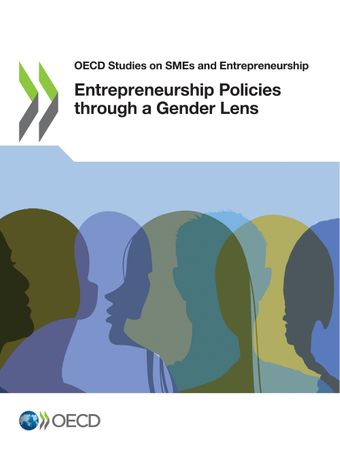 The OECD Report “Entrepreneurship Policies through a Gender Lens” has been just released. The Report is the result of a collaboration between the OECD Centre for Entrepreneurship, SMEs, Regions and Cities (CFE) and the Global Women’s Entrepreneurship Policy Research Project (Global WEP).
The OECD Report “Entrepreneurship Policies through a Gender Lens” has been just released. The Report is the result of a collaboration between the OECD Centre for Entrepreneurship, SMEs, Regions and Cities (CFE) and the Global Women’s Entrepreneurship Policy Research Project (Global WEP).
Prof. Michela Mari, Prof. Sara Poggesi and Prof. Luisa De Vita have contributed to this Report, deepening the case of Italy on how to facilitate women entrepreneurs’ access to financial capital.
For those interested, the Report is accessible on the OECD iLibrary: https://lnkd.in/d-g7sb9
[SIG 03 – ENT – Entrepreneurship]
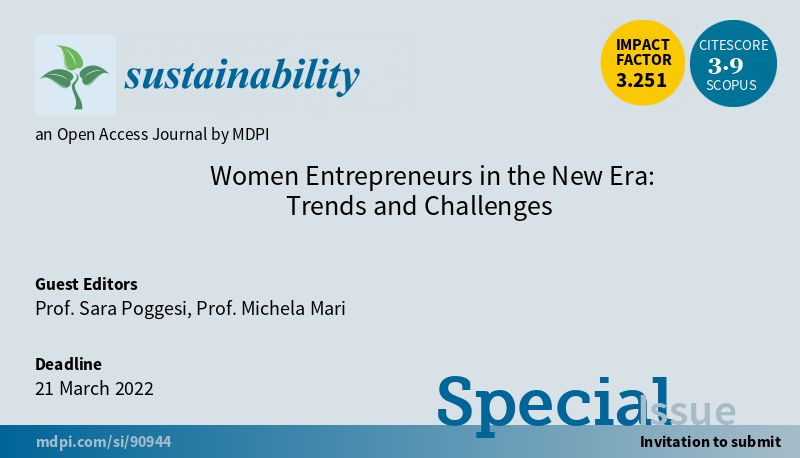 Submissions are open for the new Special Issue guest-edited by Prof. Sara Poggesi and Prof. Michela Mari entitled “Women Entrepreneurs in the New Era: Trends and Challenges” for Sustainability MDPI.
Submissions are open for the new Special Issue guest-edited by Prof. Sara Poggesi and Prof. Michela Mari entitled “Women Entrepreneurs in the New Era: Trends and Challenges” for Sustainability MDPI.
This Special Issue aims to offer a collection of theoretical, review, and empirical (qualitative or quantitative) papers covering the new frontiers of women’s’ entrepreneurship, also in light on the new challenges women entrepreneurs are about to face in the post-COVID-19 world.
More details are available here:
https://www.mdpi.com/journal/sustainability/special_issues/women_entrepreneurs_trends_challenges
Deadline for submissions: 21 March 2022
[SIG 03 – ENT – Entrepreneurship]
New book!
Title: The International Dimension of Entrepreneurial Decision-Making. Cultures, Contexts, and Behaviour. Authors: A Caputo, M M Pellegrini, M Dabic, L P Dana. Published by Springer.
Available at: https://www.springer.com/gp/book/9783030859497
The book focuses on understanding the international behaviours of SMEs, entrepreneurial ventures, and entrepreneurs. The collection of contributions gathered in the book highlights the importance of cultures, contexts and behaviours that pertain to the international entrepreneurship arena. The respective chapters address topics such as entrepreneurial cognition, international entrepreneurial ecosystems, innovation, international market entry decisions, family SMEs, international human resources management, cross-cultural and indigenous entrepreneurship, social capital and sustainability in international markets. All contributions are based on the latest empirical and theoretical research, and provide key findings and concrete recommendations for scholars, entrepreneurs, organizations and policy makers.
[SIG 03 – ENT – Entrepreneurship]
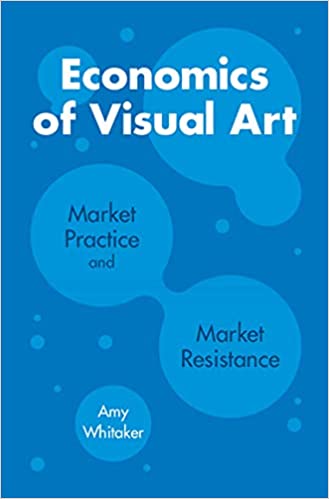 Amy Whitaker, this year’s recipient of EURAM’s Edith Penrose Award, is pleased to share the forthcoming publication of ECONOMICS OF VISUAL ART: MARKET PRACTICE AND MARKET RESISTANCE, available from Cambridge University Press in September 2021.
Amy Whitaker, this year’s recipient of EURAM’s Edith Penrose Award, is pleased to share the forthcoming publication of ECONOMICS OF VISUAL ART: MARKET PRACTICE AND MARKET RESISTANCE, available from Cambridge University Press in September 2021.
https://www.cambridge.org/core/books/economics-of-visual-art/4A40E50E8B3B011F6CB07B2D355583DA
[SIG 04 – FABR – Family Business Research]
PuntOorg International Journal
Call for paper: Entrepreneurship as a structural transformation of contexts: Toward an understanding of being entrepreneurial
The journal invite scholars to submit their manuscripts, written in English, knowing that we are open to a wide range of studies that deal with the main topic of the call, namely structural transformation as a manifestation of entrepreneurship.
In terms of the type of study, we welcome theoretical (conceptual or review), qualitative, and quantitative studies at any level of analysis. Therefore, the study can be focused on the individual, group, and/or organisational level.
https://www.puntoorginternationaljournal.org/index.php/PIJ/announcement/view/10
[SIG 07 – IM – International Management]
Constructive Intercultural Management – Integrating Cultural Differences Successfully, written by Christoph Barmeyer (University of Passau, Germany), Madeleine Bausch (University of Passau, Germany) and Ulrike Mayrhofer (IAE Nice, Université Côte d’Azur, France).
Attached the leaflet, and a short description:
The textbook comprises an innovative companion for cross-cultural management classes, demonstrating how organizations can deal with cultural differences successfully. Providing a constructive and positive lens into the multifaceted world of interculturality, the authors illustrate the multiple benefits associated with cultural diversity in the fast-changing global and digital environment.
More information on the book and on purchase can be found at:
https://www.e-elgar.com/shop/gbp/constructive-intercultural-management-9781839104558.html
Constructive Intercultural Management https://euram.academy/content/contributions/20210831-093946_TaijuPlc.pdf
[SIG 07 – IM – International Management]
A new book emphasising the importance of context to understanding of human resource management has just been published:
Parry, E., Morley, M., and Brewster, C. [Eds.], (2021) Oxford Handbook of Contextual Approaches to Human Resource Management Oxford, Oxford University Press. ISBN: 9780190861162
The book draws on the expertise of authors from around the world, examining theoretical and conceptual lenses, regional and cultural clusters, sectoral and organisational influences and the functional context and activities, arguing that we need to understand these influences rather than attempt to understand HRM as universally understandable policies and practices.
[SIG 09 – OB – Organizational Behaviour]
In ‘Computational Organizational Cognition: A study on thinking and action in organizations’ (Emerald), Davide Secchi presents an innovative definition of organizational cognition using a research tradition that builds on the Embodied/Distributed/Extended Cognition (EDEC) perspectives and it is developed through agent-based computational simulation modelling.
After an overview of EDEC perspectives, ‘Computational Organizational Cognition’ presents four simulations which allow readers to clearly assess the advantages of agent-based computational organizational cognition (AOC) for both theory and practice. The book attempts to demonstrate how AOC is a useful if not essential instrument to explore, understand and analyze the inner complexities of organizational cognition. AOC is a powerful tool and an approach for organizational research enquiry at the service of both organizational scholars and cognitive scientists.
URL: https://books.emeraldinsight.com/page/detail/Computational-Organizational-Cognition/?K=9781838675127
[SIG 09 – OB – Organizational Behaviour]
New books:
Maclean, M., Clegg, S. R., Suddaby, R. & Harvey, C. (2021) Historical Organization Studies: Theory and Applications. London: Routledge.
Clegg, S. R., Skyttermoen, T. and Vaagaasar, A. L. (2021) Project Management: A Value Creation Approach. London: Sage.
Pina e Cunha, M., Clegg, S.R., Rego, A. & Berti, M. (2021) Paradoxes of Power and Leadership. London: Routledge.
Berti, M., Simpson, A., Pina e Cunha, M. & Clegg, S.R., (2021) Elgar Introduction to Organizational Paradox Theory. Cheltenham: Edward Elgar.
https://euram.academy/content/contributions/20210804-092242_WrUmc45R.docx
[SIG 14 GENERAL]
Stewart Clegg has retired from the University of Technology Sydney (UTS) as an Emeritus Professor and is now a Professor in the School of Project Management at the University of Sydney and is Visiting (Virtual) Professor at the University of Stavanger Business School, Norway.
He has recently published two books with colleagues:
Pina e Cunha, M., Clegg, S.R., Rego, A. & Berti, M. (2021) Paradoxes of Power and Leadership. London: Routledge.
Berti, M., Simpson, A., Pina e Cunha, M. & Clegg, S.R., (2021) Elgar Introduction to Organizational Paradox Theory. Cheltenham: Edward Elgar.

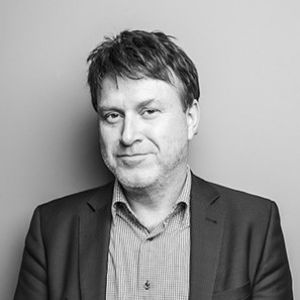




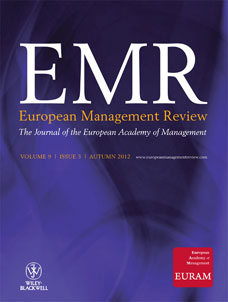
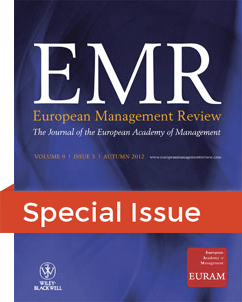
 The OECD Report “Entrepreneurship Policies through a Gender Lens” has been just released. The Report is the result of a collaboration between the OECD Centre for Entrepreneurship, SMEs, Regions and Cities (CFE) and the Global Women’s Entrepreneurship Policy Research Project (Global WEP).
The OECD Report “Entrepreneurship Policies through a Gender Lens” has been just released. The Report is the result of a collaboration between the OECD Centre for Entrepreneurship, SMEs, Regions and Cities (CFE) and the Global Women’s Entrepreneurship Policy Research Project (Global WEP). Submissions are open for the new Special Issue guest-edited by Prof. Sara Poggesi and Prof. Michela Mari entitled “Women Entrepreneurs in the New Era: Trends and Challenges” for Sustainability MDPI.
Submissions are open for the new Special Issue guest-edited by Prof. Sara Poggesi and Prof. Michela Mari entitled “Women Entrepreneurs in the New Era: Trends and Challenges” for Sustainability MDPI. Amy Whitaker, this year’s recipient of EURAM’s Edith Penrose Award, is pleased to share the forthcoming publication of ECONOMICS OF VISUAL ART: MARKET PRACTICE AND MARKET RESISTANCE, available from Cambridge University Press in September 2021.
Amy Whitaker, this year’s recipient of EURAM’s Edith Penrose Award, is pleased to share the forthcoming publication of ECONOMICS OF VISUAL ART: MARKET PRACTICE AND MARKET RESISTANCE, available from Cambridge University Press in September 2021.